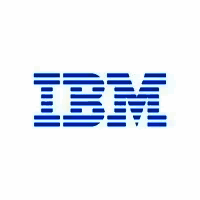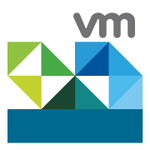Description

Awingu

ZeroTier One
Comprehensive Overview: Awingu vs ZeroTier One
Awingu and ZeroTier One are both solutions that facilitate remote access and networking, though they do so in different ways and target slightly different markets.
Awingu
a) Primary Functions and Target Markets
Functions: Awingu is a workspace aggregator that provides a unified, browser-based access to applications, files, and desktops. It operates as a remote access platform that doesn’t require any software to be installed on devices, leveraging HTML5 technology to serve its interface across various devices. Awingu provides:
- A simplified VPN alternative
- Secure access to virtual desktops and legacy applications
- Web filtering and security
Target Markets: Awingu primarily targets businesses and organizations ranging from small to enterprise-level that need secure, remote access solutions. It's particularly appealing to those in sectors where legacy systems need to be accessed remotely, such as healthcare, finance, and public sector institutions.
b) Market Share and User Base
Awingu’s specific market share numbers are not commonly available in public domain records, but as a niche solution for browser-based, secure remote access, it competes with other VPN and remote desktop access solutions. It is generally well-received in sectors requiring secure, scalable, and flexible remote access solutions.
ZeroTier One
a) Primary Functions and Target Markets
Functions: ZeroTier One is a network virtualization solution that facilitates peer-to-peer connection between devices via a virtual network. It is similar to a VPN but focuses on direct device-to-device connections. ZeroTier One provides:
- Private network creation and management
- Secure routing
- NAT traversal
- Seamless integration into existing networking infrastructures
Target Markets: ZeroTier One appeals mostly to technologically savvy users, teams, and organizations that require flexible and reliable virtual networking capabilities. Its user base tends to include IT professionals, developers, and tech companies needing scalable virtual networks for distributed systems and remote networking.
b) Market Share and User Base
Like Awingu, ZeroTier's specific market share figures aren’t widely publicized, but it is a popular choice among open-source enthusiasts and IT professionals. ZeroTier's user community is active, with many utilizing it for projects that require easy network configurations across various devices and platforms.
c) Key Differentiating Factors
-
Technology & Approach:
- Awingu uses a browser-based approach to provide access to various applications and desktops without requiring client-side installations, whereas ZeroTier One offers a more traditional virtual network experience for secure device interconnectivity.
-
User Experience:
- Awingu provides end-users with a unified workspace accessible via a web browser, which is beneficial for accessing legacy systems and integrating various services in a straightforward UI.
- ZeroTier One offers more control and flexibility for users needing to set up and manage complex network environments, albeit requiring more technical know-how.
-
Deployment & Management:
- Awingu is designed for ease of deployment and simplicity, focusing on the user experience with minimal configuration needs.
- ZeroTier One allows detailed network management and is more adaptable to specific networking needs, but typically requires more technical expertise to deploy and manage effectively.
Overall, while both solutions address remote access needs, they cater to different uses and expertise levels, and thus, appeal to distinct sectors and end-user types.
Contact Info

Year founded :
Not Available
Not Available
Not Available
Not Available
Not Available

Year founded :
Not Available
Not Available
Not Available
Not Available
Not Available
Feature Similarity Breakdown: Awingu, ZeroTier One
When comparing Awingu and ZeroTier One, both of which operate in the realm of remote access and networking, there are several nuances to consider in terms of core features, user interfaces, and unique functionalities.
a) Core Features in Common
-
Remote Access: Both Awingu and ZeroTier One facilitate remote connectivity, allowing users to access systems or resources from a distance.
-
Security: They both emphasize security. Awingu provides a browser-based gateway that aims to ensure secure sessions, while ZeroTier One utilizes end-to-end encryption.
-
Cross-Platform Support: Both solutions support multiple operating systems and devices, enabling users from various platforms to connect and collaborate.
-
Networking Configuration: Both offer features that simplify network configuration and management. Awingu offers a unified workspace, while ZeroTier One provides virtual network creation.
b) User Interfaces Comparison
-
Awingu: Awingu’s user interface is centered around a browser-based system, meaning that the workspace is accessed directly through a web browser. This allows users to access their workspace and applications without needing to install any local software. The interface is designed to be user-friendly and intuitive with a clean layout that focuses on simplicity.
-
ZeroTier One: ZeroTier One interface is typically accessed via a desktop application, although it has web-based elements for configuration. The UI for ZeroTier tends to be more technical, catering to users who have networking knowledge. It provides detailed options for managing and configuring virtual networks, which may require a steeper learning curve for casual users.
c) Unique Features
-
Awingu:
- Unified Workspace: Awingu excels in providing a virtual unified workspace that integrates applications, files, and services in a single location that can be accessed through a browser.
- Application Virtualization: It offers functionality that allows application virtualization, enabling users to access complex software without installing it locally.
- File Sharing: Built-in secure file sharing and collaboration features are notable, allowing easy distribution and collaborative work on documents.
-
ZeroTier One:
- Peer-to-Peer Networking: ZeroTier One offers a unique approach with its peer-to-peer VPN capabilities, creating a decentralized mesh network that can adapt and self-optimize.
- Programmable Network Control: Users can script and automate network behavior, which provides a high level of customization and automation in network management.
- Low-Level API Access: The platform gives developers access to its API to create custom networking features and integrations, providing significant flexibility.
In summary, while both Awingu and ZeroTier One focus on enabling remote access and secure networking, they cater to different use cases with their unique features and user interface designs. Awingu's strengths lie in its user-friendly, browser-based workspace, while ZeroTier excels in customizable and efficient network creation with its programmable networking features.
Features

Not Available

Not Available
Best Fit Use Cases: Awingu, ZeroTier One
Awingu and ZeroTier One are two distinct products that cater to specific networking and remote access needs. Here's a detailed analysis of their best fit use cases, suitable businesses, and scenarios:
Awingu
a) For what types of businesses or projects is Awingu the best choice?
-
Remote Work Enablement: Awingu provides a unified workspace that allows employees to access corporate applications, files, and desktops in a secure and browser-based environment. It's ideal for businesses focusing on remote work solutions without the need for complex VPN setups.
-
BYOD Strategies: Companies that are implementing BYOD (Bring Your Own Device) policies can benefit from Awingu, as it allows secure and controlled access to business applications and data from any device, reducing dependency on corporate hardware.
-
SMBs and Enterprises: Both small to medium-sized businesses (SMBs) and larger enterprises can benefit from Awingu’s cost-effective and scalable solutions, particularly those with a diverse workforce or those operating in multiple locations.
-
Industries with Compliance Requirements: Industries like healthcare, finance, and legal, which require stringent data privacy and compliance measures, will find Awingu beneficial due to its secure access methodologies and centralized control mechanisms.
ZeroTier One
b) In what scenarios would ZeroTier One be the preferred option?
-
Virtual Networking Needs: ZeroTier One is optimal for scenarios where virtual networking and secure peer-to-peer connectivity are essential. This product is particularly well-suited for connecting IoT devices, cloud resources, and complex network topologies across geographies.
-
Cross-Platform Scenarios: If an organization requires a solution that supports multiple platforms (e.g., Windows, macOS, Linux, Android, iOS), ZeroTier One can provide a seamless networking experience, enabling secure and efficient communication across all devices.
-
Dynamic Collaboration Projects: For projects that involve dynamic or temporary team structures, such as joint ventures or cross-organization projects, ZeroTier enables quick setup and breakdown of secure networks without infrastructure headaches.
-
Startups and Tech Companies: Startups and tech companies often need flexible, easily deployable network solutions that can scale rapidly, making ZeroTier One an attractive option due to its agility and simplicity.
Industry Verticals and Company Sizes
Awingu:
-
Corporate Enterprises: Large organizations looking for secure remote access solutions with centralized management, especially those with compliance needs.
-
Healthcare and Legal: Industries that require secure and simple RDS (Remote Desktop Services) where client data security is paramount.
-
Education: Institutions needing to provide students and faculty with access to educational resources and applications remotely.
ZeroTier One:
-
Technology and IT Services: Companies where dynamic and multi-platform networking is crucial, including enterprise IT departments that need to manage networks across various endpoints seamlessly.
-
Manufacturing and Logistics: Businesses with distributed operations can use ZeroTier to maintain secure and efficient communication lines between devices and sites.
-
Research and Development: Teams that involve global collaboration on complex scientific or engineering projects benefit from ZeroTier's ease of network creation and maintenance.
In summary, Awingu is best suited for organizations with a need for secure and controlled remote access to applications and data, while ZeroTier One excels in scenarios requiring flexible and platform-independent networking solutions. Each caters to different industry needs and company sizes by addressing specific access and connectivity challenges.
Pricing

Pricing Not Available

Pricing Not Available
Metrics History
Metrics History
Comparing undefined across companies
Conclusion & Final Verdict: Awingu vs ZeroTier One
Conclusion and Final Verdict: Awingu vs. ZeroTier One
When evaluating Awingu versus ZeroTier One, it is essential to understand that both solutions address different needs and can serve different types of users. Awingu is a Unified Workspace solution that allows businesses to deliver applications, desktops, and files to users, primarily focusing on ease of access and collaboration. ZeroTier One, on the other hand, is a network virtualization tool designed to provide secure, direct, and efficient network connectivity.
a) Best Overall Value
ZeroTier One offers the best overall value for users seeking network connectivity solutions. Its open-source nature, strong community support, extensive configurability, and cost-effectiveness (especially in smaller-scale deployments) make it a versatile choice for developers, IT administrators, and tech-savvy users who require secure and efficient networking.
b) Pros and Cons
Awingu
Pros:
- Ease of Use: Simplifies access to remote applications and files, centralizing resources in a single browser-based interface.
- Security: Strong focus on security with features like MFA, auditing, and encryption.
- Deployment: Can be deployed on-premises or in the cloud, offering flexibility in implementation.
Cons:
- Cost: Typically more expensive than other remote access solutions, which might not justify the cost for smaller enterprises or personal use.
- Complexity: May require more comprehensive IT infrastructure and support, which could be a barrier to smaller businesses.
ZeroTier One
Pros:
- Cost-Effective: Free for basic usage, making it affordable for small businesses and personal users.
- Flexibility: Highly versatile with extensive customization features for network configurations.
- Community and Support: Strong open-source community provides support and regular updates.
Cons:
- Technical Knowledge Required: May require a higher level of technical knowledge to configure and manage, which might be troublesome for non-technical users.
- Limited Enterprise Features: Lack of enterprise-grade features like those found in robust remote desktop solutions.
c) Recommendations
-
For Users Seeking Simplified Access and Collaboration: Awingu is more suited for organizations that need secure, easy-to-deploy remote workspace solutions. It is ideal for environments where users access software applications, desktops, and files without worrying about complicated network settings.
-
For Users Seeking Network Virtualization and Custom Connectivity: ZeroTier One is recommended for those who need a cost-effective, secure networking solution. It's perfect for developers or IT professionals who require private and flexible network configurations and who are comfortable with a certain level of technical complexity.
-
SMBs and Cost-Conscious Users: Those who prioritize budget and require simple secure network solutions might gravitate towards ZeroTier One due to its open-source nature and no-cost entry-level plans.
In summary, the decision largely depends on your specific needs: for remote applications and workspace access, Awingu excels; for network virtualizations and bespoke connectivity, ZeroTier One shines. For businesses or users who are aligned with both their needs and their technical expertise, these respective strengths will guide the choice.
Add to compare
Add similar companies




